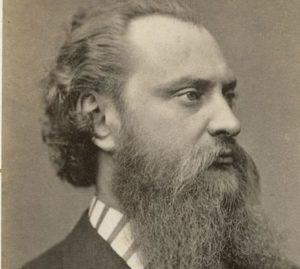
Artist Profile: Albert Niemann, One of Wagner’s Preferred Tenors
By David SalazarAlbert Neimann was born on Jan. 15, 1831 in Erxleben, and would go on to become one of Germany’s greatest tenors.
He lost his father at an early age and was raised by his mother. Initially he was trained to be an engine-maker but ran away to Dresden to create his own life, eventually becoming a singer.
His debut came in Dessau in 1849, eventually earning major engagements over the next two decades in Stuttgart, Königsberg, Hannover, and Stettin.
In 1858, he visited Richard Wagner who wanted him to become part of a company the composer was putting together. While the two would have a long association with one another, there would be some tension, most notably during the 1860 premiere of “Tannhäuser” in Paris where it is said that Niemann refused to take any direction from the composer. During the opening of the Bayreuth Festival, Niemann also stormed out when he learned that he would not sing the role of Siegfried. Eventually he returned to take on Siegmund and continued his association with the composer.
He was a part of the Berlin Opera until 1888, but also participated in major international tours that saw him perform in London, and at the Metropolitan Opera House. He also appeared in Belgium, Holland, Switzerland, Italy, Hungary, and Austria.
Niemann died at age 85.
Signature Roles
Niemann is remembered today for his work in Wagner’s operas. He was Siegmund of choice for the first complete production of “Der Ring des Nibelungen” and sang Walther in the Berlin premiere of “Der Meistersinger von Nürnberg.” He was also the first American “Tristan” and the Siegfried for the first American “Götterdämmerung.”
He sang a number of other Wagnerian roles, earning tremendous praise from his colleagues.
“Never since have I heard or seen a Siegmund to compare with him… His intellectual power, his physical impressiveness, his incomparable expression were superb beyond words,” stated soprano Lilli Lehmann. She also noted that his “Tristan” was “certainly the most sublime thing that has ever been achieved in the sphere of music drama.”
Categories
Opera Wiki

